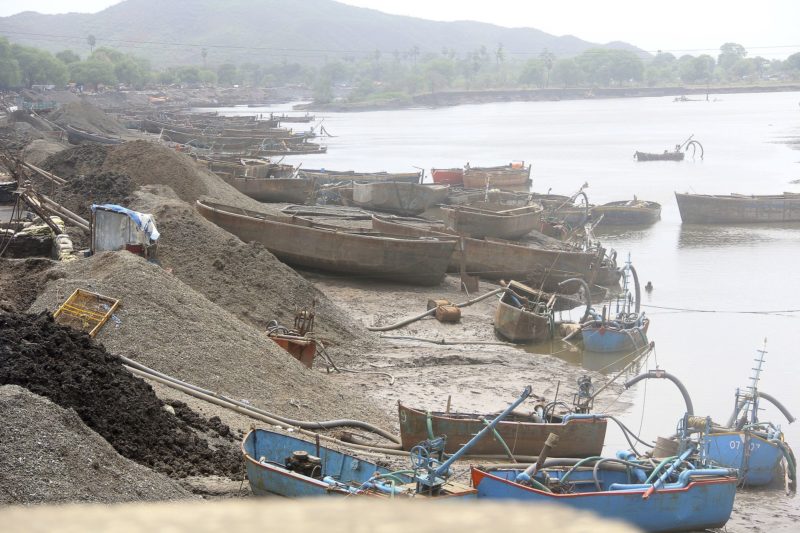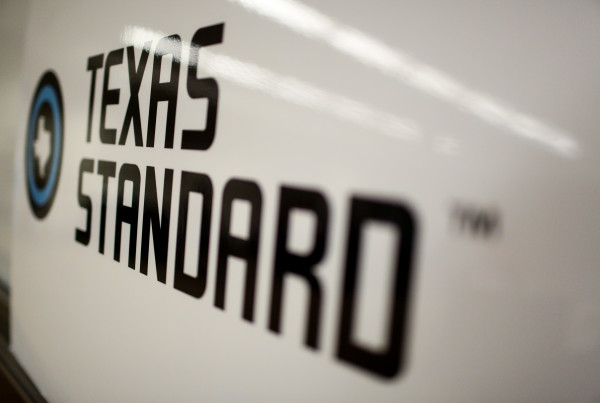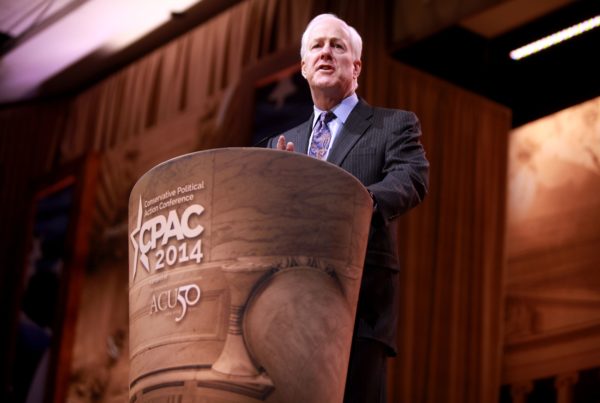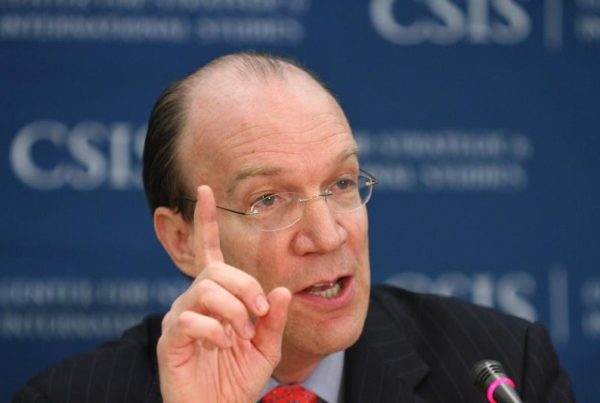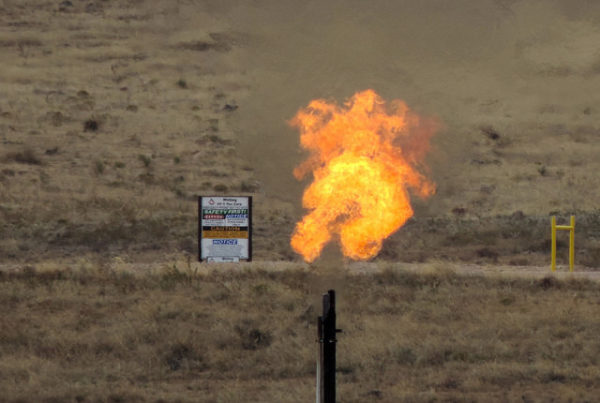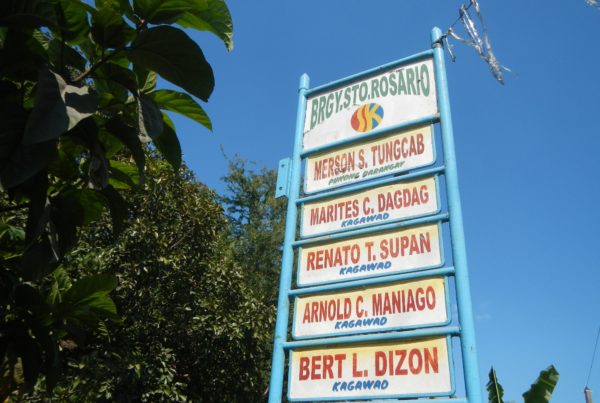Atascosa County is just south of San Antonio. It is home to about 45,000 people. It is perhaps better known for the Poteet Strawberry Festival and being the birthplace of George Strait than it is for fracking and natural gas. But in recent months, energy companies have flocked to the area.
Driving down the road off of 281, south of San Antonio, you’re likely to notice a huge cloud of dust trailing behind the back wheels of your vehicle. The soil here in this stretch of farms, ranches and homesteads is famous for being sandy. It’s the very reason the region is able to produce delicious strawberries. And it’s also the reason folks in the energy industry are interested in Atascosa County.
As the fracking boom continues, sand mines have begun to pop up across Texas. A certain type of sand is required in the fracking process – and Atascosa County has it.
Texas Sandmining, which is owned by a Pennsylvania company , is trying to set up shop in the area. And that has some residents upset. The company bought a site some believe is where the Battle of the Medina took place. That was the bloodiest battle in Texas’ fight for independence.
But City of San Antonio Archaeologist Kay Hines says because it was a running battle that took place over miles, it’s hard to pin down where the bulk of fighting took place.
“I think most everyone’s in agreement within a general area of the battle but coming up with that incontrovertible proof has been very difficult,” Hines says.
The proposed sand mining site has also roused concerns from neighbors about how the industry will affect their own livelihoods.
And Poteet resident Jessica Hardy says she worries about health and safety issues.
“As a matter of fact my youngest daughter was in the process of getting plans drawn up to be built for a house right behind me,” Hardy says. “She has two young boys and we’ve had to put that on hold until we’ve found out exactly what’s going on out here because I don’t want them to have to breathe that dust or to wait at the school bus with all these trucks going by every day.”
Hardy and her neighbors created a group called ‘Not Just Dust – Bruce Road.’ It’s Facebook group has more than 300 members, and the organization is devoted to halting the construction of this sand mine.
“It’s quiet out here and all that’s going to change,” Hardy says. “Our air quality is gonna get degraded or we’re all going to have to worry about. We’re all on wells were all going to worry about our water quality, the noise pollution’s just really gonna change our way of life.”
Hardy says one of the major challenges for the group is holding the mines accountable and picking up slack where other environmental agencies fall behind.
‘They have little regulation and sometimes it’s easier for these sand mines to pay the fines than it is to fix the problem after they’re up and running,” she says.
Atascosa County Judge Robert Hurley says he has heard a lot from folks like Hardy. And they’ve asked him to take action in the only way he can – by restricting companies’ access to the land itself. Judge Hurley has issued a ‘no through truck’ ordinance to limit the amount of traffic in the area.
“I’m not sure that’s going to work for them the way they think it’s going to because the truck’s going in to load with sand when the frack mines operating aren’t through trucks, they’re going in to load and they’re coming back out,” Hurley says.
Because these trucks wouldn’t technically be ‘through’ trucks, Hurley says the most the people could do to limit traffic in the area is to set load limits on the roads.
“There are a number of hoops that we have to jump through to satisfy TxDot (the Texas Department of Transpiration) to do something like that,” Hurley says.
This is where a larger conservation begins – one about local versus state control.
“It’s my understanding that our counties are limited in what we can designate,” Hurley says. “We don’t have zoning authority, we can’t say what the property can be used for, as long as it meets our subdivision requirements and our general health and sanitary requirements and then the state’s pretty much in charge of the rest of it.”
Though Hurley says he’d like to address the concerns of his constituents, he also says he recognizes that the sand miners, as landowners, have a right to conduct their business in the county.
“I try to strike a balance,” Hurley says “but businesses have to operate too and land owners have to have their rights. as the sand company told me, ‘we’ve closed on this land, we own it now, we’re now a landowner in Atascosa County and we’d appreciate the consideration that we should get.’ And you know they’ve got a good point. ”
Hurley also recognizes the potential economic boon the mines would offer. Meanwhile, Jessica Hardy says the different levels of state versus local control have made it hard for her group to monitor the activities of the various companies involved. She says simply trying to figure out what’s going on has been a goose chase of hunting down permits across a plethora of agencies.
“You call one agency and they’ll tell you it’s the other agency and you just get the run around back and forth,” Hardy says. “Our water district here has been very helpful in working with our water district. But the problem with that is their hands are tied.”
In this case, Hardy is referring to a sand mine located just beyond the Atascosa County line in southern Bexar County. Evergreen Water Conservation District regulates water within Atascosa County, but not where this particular mine will operate. Hardy says this poses a big problem when it comes to water conservation.
“Their line stops at our county line,” Hardy says. “Unfortunately, our aquifer recharge zone doesn’t stop at the county line.”
Hardy says she’d like to see the area annexed into the Evergreen Water District. But this would require action beyond the county’s authority. These types of amendments are often possible only through action by the Texas Legislature.
“We’re over the recharge zone, Hardy says “so if they contaminate our water here, that’s gonna affect everybody south of us, it’s their drinking water too. I guess I’d just like everybody to take a minute and think about that. that is does kind of affect us all.
As Hardy and her neighbors continue to fight the sand mines, the energy industry will continue to look to establish more across Texas. Right now, much of the sand is being trucked in from out of state -– but the latest fracking boom in the Permian Basin is inspiring those in the industry to get serious about finding closer sources.


